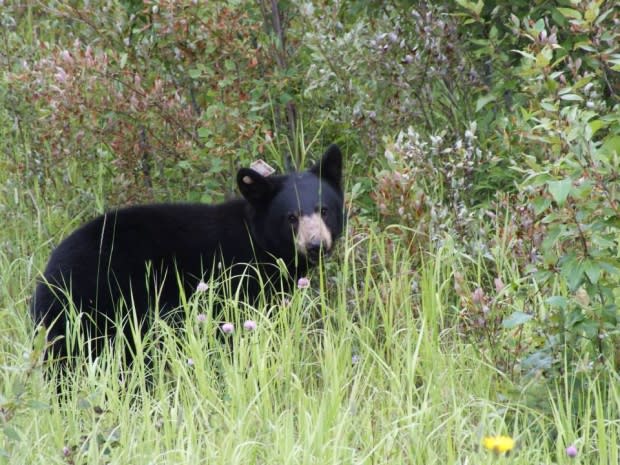Sask. Ministry of Environment freezes black bear rehabilitation
Mark Dallyn expects to feel especially bittersweet when he watches his black bear yearling amble into the wild after months at the wildlife rehabilitation centre in Dorintosh, Sask.
Saskatchewan's Ministry of Environment has revoked Dallyn's permit to work with baby black bears as part of a new moratorium on permits for large animal rehabilitation.
"It's going to be a really good day, but probably one of the saddest ones," said Dallyn, who runs non-profit Healing Haven Wildlife Rescue Inc.
The moratorium on permits for large "predators" extends to cougars, lynx, bobcats, wolverines, wolves and bears.
Dallyn said he has successfully rehabilitated eleven young bears over the last nine years and feels heartbroken by the province's decision.
This moratorium could mean captivity or death for future orphaned cubs, he said, as rehabilitation spots are limited in Canada.
A spokesperson for the ministry said in an email that it would try to find a suitable location for animals who need help during the moratorium.
However, they didn't rule out euthanasia and said "there are a number of challenges in rehabilitating bear cubs and the primary concern must be for the animal's welfare and public safety."
The moratorium is in place as the ministry reviews its captive wildlife regulations and policies, "in an effort to revise and update them accordingly."
3 orphaned black bears placed in zoo
Dallyn was first notified of the moratorium by email on June 14.
The email said "lessons learned in the past week have further solidified our understanding of the importance of adhering to strict standards and handling protocols regarding the care and safe release of dangerous species such as black bears."
Three young black bears were orphaned earlier this month. A conservation officer shot the cubs' mother because she was reportedly coming too close to the Saskatchewan community of Cote First Nation.
There were no available spots for the bears at other centres from British Columbia to Ontario. The ministry decided the Saskatoon Forestry Farm Park & Zoo was the most qualified facility to take in all three.
Dallyn's centre was only licensed for two bear cubs. However, he said he was already in the process of building a 5,000 square foot space and had hoped to help the three cubs once the expansion and other upgrades were complete.
The cubs are supposed to be held at the zoo, away from the public, for 14 months before being released into the wild.

The province has issued a temporary emergency permit for the zoo to rehabilitate the cubs because it has an "approved quarantine facility, access to the Western College of Veterinary Medicine at the University of Saskatchewan and strict access to enclosures."
A spokesperson for the ministry said it is aiming for fall 2019 to complete the Captive Wildlife Regulations review.
Dallyn's lawyer Trevor Shishkin said they want to work with the ministry to ensure new standards are created as soon as possible.
"We think it's kind of ludicrous that they would try to reinvent the wheel here," he said, noting they are also considering a judicial review so Dallyn can continue to work with bears.
"If this decision to create the moratorium does not accord with law — or they didn't do the right process to get to that decision — then we would be asking the courts to put that moratorium on hold."

